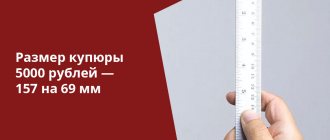Article 171.1. Production, acquisition, storage, transportation or sale of goods and products without labeling and (or) application of information provided for by the legislation of the Russian Federation
1. Production, acquisition, storage, transportation for marketing purposes or sale of goods and products without labeling and (or) application of information provided for by the legislation of the Russian Federation, if such marking and (or) application of such information is mandatory (except for products specified in parts three and five of this article), or production, acquisition, storage, transportation for marketing purposes or sale of goods and products using knowingly counterfeit means of identification for marking goods, committed on a large scale -
shall be punishable by a fine in the amount of up to three hundred thousand rubles, or in the amount of the wages or other income of the convicted person for a period of up to two years, or by forced labor for a term of up to three years, or by imprisonment for a term of up to three years with a fine of up to eighty thousand rubles or the amount of wages or other income of the convicted person for a period of up to six months.
1.1. The same acts committed by a group of persons by prior conspiracy -
shall be punishable by a fine in the amount of one hundred thousand to three hundred thousand rubles, or in the amount of the wages or other income of the convicted person for a period of one to three years, or by forced labor for a term of up to four years, or by imprisonment for the same term with a fine of up to one hundred thousand rubles or in the amount of wages or other income of the convicted person for a period of up to one year or without it.
2. The acts provided for in part one of this article, committed:
a) an organized group;
b) on an especially large scale, -
shall be punishable by a fine in the amount of two hundred thousand to five hundred thousand rubles, or in the amount of the wages or other income of the convicted person for a period of one to three years, or by forced labor for a term of up to five years, or by imprisonment for a term of up to six years with a fine in the amount of up to one million rubles or in the amount of wages or other income of the convicted person for a period of up to five years or without it.
3. Production, acquisition, storage, transportation for marketing purposes or sale of food products without labeling and (or) application of information provided for by the legislation of the Russian Federation, if such marking and (or) application of such information is mandatory (except for products specified in part five of this article), or production, acquisition, storage, transportation for marketing purposes or sale of food products using deliberately counterfeit means of identification for marking goods, committed on a large scale -
shall be punishable by a fine in the amount of up to four hundred thousand rubles, or in the amount of the wages or other income of the convicted person for a period of up to two years, or by forced labor for a term of up to three years, or by imprisonment for a term of up to three years with a fine of up to eighty thousand rubles or the amount of wages or other income of the convicted person for a period of up to six months.
4. The acts provided for in part three of this article, committed:
a) by a group of persons by prior conspiracy or an organized group;
b) on an especially large scale, -
shall be punishable by a fine in the amount of three hundred thousand to seven hundred thousand rubles, or in the amount of the wages or other income of the convicted person for a period of one to three years, or by forced labor for a term of up to five years, or by imprisonment for a term of up to six years with a fine in the amount of up to one million rubles or in the amount of wages or other income of the convicted person for a period of up to five years or without it.
5. Production, acquisition, storage, transportation for the purpose of marketing or sale of unlabeled alcoholic products subject to mandatory marking with excise stamps or federal special stamps, as well as unmarked tobacco products subject to marking with special (excise) stamps, committed on a large scale -
shall be punishable by a fine in the amount of up to five hundred thousand rubles, or in the amount of the wages or other income of the convicted person for a period of up to two years, or by forced labor for a term of up to three years, or by imprisonment for a term of up to three years with a fine of up to one hundred twenty thousand rubles, or in the amount of wages or other income of the convicted person for a period of up to six months.
6. Acts provided for in part five of this article, committed:
a) by a group of persons by prior conspiracy or an organized group;
b) on an especially large scale, -
shall be punishable by a fine in the amount of four hundred thousand to eight hundred thousand rubles, or in the amount of the wages or other income of the convicted person for a period of one to three years, or by forced labor for a term of up to five years, or by imprisonment for a term of up to six years with a fine in the amount of up to one million rubles or in the amount of wages or other income of the convicted person for a period of up to five years or without it.
Notes. 1. Large size in parts three and four of this article is recognized as the cost of unlabeled food products exceeding four hundred thousand rubles, and especially large - one million five hundred thousand rubles.
2. Large size in parts five and six of this article is recognized as the cost of unlabeled alcoholic beverages and (or) unlabeled tobacco products exceeding one hundred thousand rubles, and especially large - one million rubles.
- Article 171. Illegal entrepreneurship
- Article 171.2. Illegal organization and conduct of gambling
What is counterfeit
A counterfeit product is any type of product produced in violation of the law. It is created on the basis of an existing original, but without licensing.
Counterfeiting, as well as penalties for it, are determined by Articles 146 and 147 of the Criminal Code of the Russian Federation. This crime involves the violation of the owner's legal rights to his intellectual property. This also includes the use of labels from other companies, including world-famous ones.
Types of counterfeit
The concept of counterfeit is quite multifaceted, which is why it is divided into several types. Let's list them:
- Use of developments and any inventions, the copyright holders of which are other persons.
- Copying other people's logos without making any of your own changes. This type of counterfeit is much less common than the others, since the violation of the law in this situation is obvious, and, therefore, the distributor can be held accountable quite easily and quickly.
- Using an almost identical brand name or trademark of a popular brand. Here, as a rule, one or two letters of the original name are changed (for example, Adidas and addibas or Tefal and Tafel). The calculation is based on the buyer’s inattention or ignorance of how to correctly spell the name of a given brand.
- "Piracy". This type of counterfeiting involves the distribution and sale of copies of musical, artistic and literary works without the consent of the copyright holder. This type of gratuitous counterfeiting is very common on the Internet these days.
Commentary to Art. 171.1 of the Criminal Code of the Russian Federation
The object of the crime is the established procedure for the production and circulation of goods and products subject to mandatory labeling.
The current legislation provides a list of goods and products, the production and sale of which without their mandatory marking with excise duty stamps and special stamps is prohibited. These include alcoholic beverages, tobacco and tobacco products.
Alcohol products, tobacco and tobacco products produced and sold on the territory of our state (with the exception of export supplies) are marked with federal special stamps, and these products imported into the Russian Federation are marked with excise stamps.
———————————
See: Decree of the Government of the Russian Federation of December 21, 2005 N 785 “On the labeling of alcoholic products with federal special marks” // RG. 2005. Dec 28; Decree of the Government of the Russian Federation of June 18, 1999 N 648 “On the labeling of tobacco and tobacco products produced on the territory of the Russian Federation with special brands” // RG. 1999. June 23.
See: Decree of the Government of the Russian Federation of December 21, 2005 N 786 “On excise stamps for labeling alcoholic products” // RG. 2005. Dec 28; Decree of the Government of the Russian Federation of September 4, 1999 N 1008 “On excise stamps” // RG. 1999. 11 Sep.
The federal special stamp and excise stamp are state reporting documents that certify the legality of the production and circulation of alcoholic beverages, tobacco and tobacco products on the territory of the Russian Federation, and control over the payment of taxes. These stamps are purchased from tax and customs authorities.
Alcohol products, the packaging of which does not allow marking with federal special stamps and excise stamps, are exempt from their application in the manner established by the Government of the Russian Federation, subject to full payment of the excise tax.
———————————
Clause 5 of Art. 12 of the Federal Law of November 22, 1995 N 171-FZ “On state regulation of the production and turnover of ethyl alcohol and alcoholic products” // RG. 1995. 29 Nov.
In accordance with Art. 2 of the Federal Law of December 27, 2002 N 184-FZ “On Technical Regulation”, the mark of conformity is understood as a designation that serves to inform purchasers about the compliance of the certification object with the requirements of the voluntary certification system or the national standard. Certification is a form of confirmation by a certification body of compliance of objects with the requirements of technical regulations, provisions of standards, codes of practice or terms of contracts.
———————————
RG. 2002. 31 Dec.
Mandatory product certification, in force at one time, on the basis of the Resolution of the Constitutional Court of the Russian Federation of November 22, 2001 N 15-P, was canceled by the Government of the Russian Federation.
———————————
See the terminated Law of the Russian Federation of June 10, 1993 N 5151-1 “On certification of products and services” // RG. 1993. June 25; Decree of the Government of the Russian Federation of May 17, 1997 N 601 “On the labeling of goods and products on the territory of the Russian Federation with marks of conformity protected from counterfeiting” // RG. 1997. May 28.
See: Decree of the Government of the Russian Federation of February 6, 2002 N 82 “On the repeal of decrees of the Government of the Russian Federation on the issues of labeling goods and products with marks of conformity protected from counterfeiting” // RG. 2002. 13 Feb.
At the moment Art. 23 of the Federal Law of December 27, 2002 N 184-FZ “On Technical Regulation” indicates that only products put into circulation on the territory of the Russian Federation can be the object of mandatory confirmation of conformity, and such confirmation is carried out only in cases established by the relevant technical regulations , and solely for compliance with the requirements of technical regulations.
———————————
RG. 2002. 31 Dec.
However, in the current legislation of the Russian Federation there is no special list of products subject to mandatory confirmation of conformity. Thus, the provisions of Art. 171.1 of the Criminal Code of the Russian Federation in this part do not apply.
The subject of the crime is unmarked goods and products that are subject to mandatory marking with excise duty stamps and special stamps.
Alcoholic is food products that are produced using ethyl alcohol produced from food raw materials and (or) alcohol-containing food products with an ethyl alcohol content of more than one and a half percent of the volume of the finished product. Alcohol products are divided into types such as drinking ethyl alcohol, alcoholic beverages (including vodka), wine (including natural wine).
———————————
Article 2 of the Federal Law of November 22, 1995 N 171-FZ “On state regulation of the production and circulation of ethyl alcohol and alcoholic products” // RG. 1995. 29 Nov.
Tobacco and tobacco products are products for smoking, chewing or snorting, packaged in consumer packaging, including filtered cigarettes, non-filtered cigarettes, cigarettes, cigars, cigarillos, pipe tobacco, smoking tobacco, smoking tobacco.
———————————
Article 1 of the Federal Law of July 10, 2001 N 87-FZ “On restricting tobacco smoking” // RG. 2001. July 14.
The objective side of the crime is expressed in large-scale actions involving unmarked goods and products that are subject to mandatory marking with excise duty stamps, special stamps or marks of conformity protected from counterfeiting: 1) production; 2) acquisition; 3) storage; 4) transportation; 5) sales.
The production of unlabeled goods and products means their serial production. Acquisition is the acquisition of property for a fee or free of charge by any means. Storage is the actions of a person associated with the possession of these items (for example, in a car, in a warehouse, in a hiding place). Transportation is the movement of unmarked goods and products by the perpetrator from one place to another, using any type of transport (for example, in a car, train, plane). Sale is any form of paid or gratuitous transfer of this property to third parties (for example, sale, exchange, donation).
An act related to production, acquisition, transportation and sales is completed at the moment of commission of any of these actions. The corpus delicti is formal.
Possession of unmarked goods or products is an ongoing crime. Liability begins from the moment storage begins, regardless of its duration.
In accordance with the note to Art. 169 of the Criminal Code of the Russian Federation, large size means the cost of unmarked goods and products that exceeds two hundred and fifty thousand rubles, and especially large - one million rubles.
The cost of unmarked goods and products can be determined on the basis of relevant documents (for example, contracts, waybills, invoices, test purchase reports) by an expert opinion.
In accordance with the Resolution of the Plenum of the Supreme Court of the Russian Federation dated November 18, 2004 N 23 “On judicial practice in cases of illegal entrepreneurship and legalization (laundering) of funds or other property acquired by criminal means”, if in the process of illegal business activities, proceedings are carried out, acquisition, storage, transportation for the purpose of sales or sale of unmarked goods and products subject to mandatory marking with excise duty stamps, special stamps or marks of conformity protected from counterfeiting, committed on a large or especially large scale, the actions of a person must be qualified according to the totality of crimes provided for in Art. . Art. 171 and 171.1 of the Criminal Code of the Russian Federation.
———————————
RG. 2004. 7 Dec.
Production, storage, transportation for marketing purposes or sale of unmarked goods and products that are subject to mandatory marking with excise stamps or special stamps and that do not meet the requirements for the safety of life and health of consumers are qualified under the totality of Art. 238 of the Criminal Code of the Russian Federation.
Marking the items of the crime in question with counterfeit excise stamps or special stamps and their subsequent storage, transportation for the purpose of distribution or sale form a set of crimes provided for in Art. 171.1 and part 2 of Art. 327.1 of the Criminal Code of the Russian Federation.
Labeling products with excise tax stamps or special stamps that have lost their validity (old style) is a criminal offense under Art. 171.1 of the Criminal Code of the Russian Federation.
The subjective side of the crime is characterized by guilt in the form of direct intent. The person is aware that he is committing one or more of these actions on a large scale and wishes to do so.
Production, acquisition, storage and transportation of unmarked goods and products without the purpose of sale constitute a crime under Art. 171.1 of the Criminal Code of the Russian Federation, does not form. Motives do not matter for qualification, however, as a rule, this act is committed due to selfish interest.
The general subject of the crime is a sane individual who has reached the age of sixteen. This may be an individual entrepreneur, the head of an organization, or another person.
Qualifying criteria: commission of a crime by an organized group (see Part 3 of Article 35 of the Criminal Code of the Russian Federation and commentary thereto) or on an especially large scale.
For the illegal production and circulation of unmarked goods and products subject to mandatory marking with excise tax stamps, special stamps that do not form a large size, administrative liability is provided (Article 15.12 of the Code of Administrative Offenses of the Russian Federation).
How to recognize counterfeit products
The main sign of counterfeit products is the lack of special documentation allowing the use of this trademark. If the seller does not produce the product himself, then his product must also be accompanied by similar documentation, which he must receive from the manufacturer himself.
The seller of the original product must have documentation such as:
- A copy of the certificate stating that the product complies with established regulations. It must be certified in accordance with the procedure established by law.
- A supply agreement containing a provision that guarantees the legal origin of all products. It should also spell out the rules for compensating losses to the buyer in the event that any regulatory authority makes claims against him.
- Invoices.
- Accounts.
- Other papers drawn up in accordance with current rules.
Products that are counterfeited more often than others are checked with special care, such as:
- medications;
- cigarettes;
- alcoholic drinks.
As for intangible goods, such as computer software or video and audio recordings, a counterfeit sign is the release of this product before the official release date of the original itself. Downloading most of these products available freely on the Internet, as well as their subsequent use, is illegal. Remember this.
A few recommendations on how to spot counterfeit goods in time:
- Original alcohol products must be affixed with an excise stamp with a special hologram containing the inscription: “Russian Federation”.
- Counterfeit pharmaceutical products often cost several times less than the originals themselves. Expiration dates, production dates, as well as the series on the packaging and blister may vary. Therefore, take the drug out of the package and compare this information while still at the pharmacy.
- Most of the regulatory estimate databases, Blue-ray or DVD discs that are sold in kiosks or other various dubious places are counterfeit. Their purchase and further use will also be a direct violation of current legislation.
Methods of combating counterfeiting
According to statistics, 80% of all products supplied come in violation of the law. Since Japan signed the Anti-Counterfeiting Trade Agreement (ACTA) back in 2011, the situation has gotten a little better, but there is no end in sight. This is understandable; the demand for cheap goods is too great. ACTA has also been signed by a number of other countries that are world leaders in exports: Korea, Canada, New Zealand, Singapore, Morocco and others.
In Russia, they have not yet come to a consensus on how to combat counterfeit products. One of the methods of struggle is legislative acts.
For example, to protect intellectual property and bring to justice everyone who sells unlicensed products, Article 14.10 of the Code of Administrative Offenses is provided.
Another method of struggle, but this time on the part of the copyright holders themselves and official dealers, is to set relatively low prices for their products.
They are also establishing sales accounting in the domestic market and synchronizing discount schedules. This helps a lot in competition with “gray” importers who purchase goods abroad.
They are also fighting against “gray” imported products using technical means. For example, for our country, branded products are produced in certain forms of packaging, bottles, etc.
Often, official dealers themselves are involved in identifying “gray” importers. Once such cases are identified, the following scenarios are possible:
- law enforcement agencies open a case;
- the dealer and importer begin mutually beneficial cooperation on a legal basis.
Customs service and the fight against counterfeiting
In recent years, Russia has tightened penalties for such “gray” importers. They are implemented, in most cases, with the help of the Customs Service. When another batch of counterfeit products is detained, they notify the copyright holders about it. And they already have the right to initiate a criminal or administrative case against their offender.
But, starting in 2008, the customs service was given the right to initiate cases independently. To do this, they no longer have to wait for the reaction of copyright holders. And courts are increasingly recognizing “gray” imported products as illegal. As a result of these measures, supplies of counterfeit goods have greatly decreased in volume.
Responsibility for the distribution of counterfeit goods
The following types of liability are provided for this offense: civil (property), criminal or administrative. Let's consider the penalties for each of them.
Civil liability
According to Article 1253 of the Civil Code of the Russian Federation, the penalties for the offender will be as follows:
- At the choice of the copyright holder: the offender compensates him for the losses incurred or pays him compensation, the amount of which will be determined by the court after considering the case (from ten thousand rubles to five million rubles).
- Counterfeit products are withdrawn from circulation and destroyed at the expense of the offender.
Administrative responsibility
This type of liability according to Art. 7.12, 14.10 of the Code of Administrative Offenses of the Russian Federation is provided for in the following situations:
- turnover of “pirated” copies of works;
- use of a trademark, labels and other attributes identifying a product without the permission of the copyright holder;
- illegal use of inventions belonging to others.
Moreover, the cost of the counterfeit itself must not be less than two thousand rubles.
The penalties for offenders in these cases are as follows:
- For physical persons - penalties in the amount of one and a half to two thousand rubles (under Article 7.12) or from five to ten thousand (under Article 14.10).
- For legal entities persons – penalties from thirty to forty thousand rubles.
- For officials - penalties from ten to twenty thousand rubles.
- Also, all such products in all of the above situations will be confiscated.
Criminal liability
This type of liability may arise if the damage caused to the copyright holder exceeds one hundred thousand rubles. In these cases, the distribution of counterfeit products is considered in such articles of the Criminal Code of the Russian Federation as: 146, 147 and 180. Let us consider below all the penalties provided for by them for the sale of counterfeit products.
Art. 146 of the Criminal Code of the Russian Federation – Violation of related rights and copyright property
Plagiarism (appropriation of someone else's authorship), which caused major damage to the copyright holder (from one hundred thousand rubles), entails the following penalties:
- fines up to two hundred thousand rubles or the offender’s income for one and a half years;
- compulsory work up to 480 hours;
- correctional labor up to one;
- arrest up to six months.
Illegal use of copyrighted items, as well as the acquisition, transportation and storage of counterfeit types of phonograms or other works for the purpose of sale, as well as those committed on a large scale. Here the penalties will be as follows:
- Penalties up to two hundred thousand rubles or the offender’s income for one and a half years.
- Mandatory work up to 480 hours.
- Correctional labor for up to two years.
- Forced labor for up to two years.
- Imprisonment for up to two years.
- Crimes described in the previous paragraph, but committed:
- in a particularly large amount (from one million rubles);
- a group of previously agreed persons or an organized group;
- official during execution.
The penalties in this case are as follows:
- penalties up to five hundred thousand rubles. or in the amount of their three-year income;
- forced labor for up to five years;
- imprisonment of offenders for up to six years.
Art. 147 of the Criminal Code of the Russian Federation – Violation of patent law
Without aggravating circumstances, the penalties, according to this article, are as follows:
- fines up to two hundred thousand rubles or the offender’s income for one and a half years;
- compulsory work up to 480 hours;
- forced labor for up to two years;
- imprisonment for up to two years.
The same act, but committed by a group of previously agreed persons or an organized group, is punishable as follows:
- penalties from one hundred to three hundred thousand rubles or the income of the offender for a period of time from one year to two years;
- forced labor for up to five years;
- arrest up to six months;
- imprisonment for up to five years.
Art. 180 of the Criminal Code of the Russian Federation – Illegal use of a trademark
Illegal use of someone else's trademarks, service marks, appellations of origin, or similar designations for the same type of product. In the event that these offenses are committed repeatedly or cause large damage to the copyright holders ( from 250 thousand rubles ), the penalties for them will be as follows:
- penalties from one hundred to three hundred thousand rubles or the income of the offender for two years;
- compulsory work up to 480 hours;
- correctional labor for up to two years;
- forced labor for up to two years;
- imprisonment for up to two years with a fine of up to eighty thousand rubles. or the offender’s six-month income.
Illegal use of warning labels in relation to trademarks or names of places of production of goods not registered in the Russian Federation. In the event that these offenses are committed repeatedly or cause large damage to the copyright holders (from 250 thousand rubles), the penalties for them will be as follows:
- penalties up to 120 thousand rubles. or the offender's annual income ;
- compulsory work up to 360 hours;
- correctional labor for up to one year.
The offenses discussed above, but committed by prior conspiracy by a group of persons, are punished as follows:
- penalties from two hundred to four hundred thousand rubles or the offender’s income from six months to three years;
- forced labor for up to four years;
- imprisonment for up to four years with the imposition (or without) of a fine of up to one hundred thousand rubles. or the annual income of the offenders.
The crimes discussed in the first two paragraphs of this article, but already committed by an organized group, are punished:
- penalties from half a million to a million rubles or the offender’s income from three to five years ;
- forced labor for up to five years;
- imprisonment for up to six years with the imposition (or without) of a fine of up to half a million rubles or three years’ income of the offenders.
At the same time, the legislation allows for bringing violators to civil and criminal liability or to civil and administrative liability at the same time.
Combating counterfeit goods by bringing the offender to civil liability
Although I gave a definition of counterfeit in an article on the topic “Ways to identify and combat counterfeit products,” I would like to start this article with a definition of counterfeit, which did not appear in the previous article.
So, in accordance with paragraph 3.16 “GOST R 58223-2018. National standard of the Russian Federation. Intellectual property. Antimonopoly regulation and protection from unfair competition" counterfeit - Goods containing any protected results of intellectual activity or equivalent means of individualization, actions with which (including production, distribution or other use, as well as import, transportation or storage) lead to violation exclusive rights of their copyright holders (for example, original products imported into the EAEU without the consent of the copyright holders, and counterfeit products with the illegal use of protected means of individualization of these goods, including designations that are confusingly similar).
According to paragraph 1 of Article 1248 of the Civil Code of the Russian Federation, disputes related to the protection of violated or disputed intellectual rights are considered and resolved by the court.
Thus, in order to bring the violator to civil liability, it is necessary to file a claim in court.
Moreover, in this category of disputes, the overwhelming number of cases are considered by arbitration courts, since the parties to such disputes are legal entities and/or individual entrepreneurs.
It is worth noting that in accordance with paragraph 53 of the Resolution of the Plenum of the Supreme Court of the Russian Federation dated April 23, 2019 No. 10 “On the application of part four of the Civil Code of the Russian Federation” (hereinafter referred to as Resolution No. 10) Application to a person who has violated intellectual rights to the results of intellectual activity or means individualization, administrative or criminal liability measures does not exclude the possibility of applying to the same person measures to protect intellectual rights in civil law. It should be borne in mind that the refusal in itself to bring a person to administrative or criminal liability does not mean the impossibility of applying civil legal measures of protection.
This means that even if the violator has already been brought, for example, to administrative responsibility on the basis of materials collected by the customs authority or the police, the circumstances established in the court decision by which the violator was brought to administrative responsibility can be used as a prejudgment when applying to court with a claim for civil liability.
In case of violation of an exclusive right, the copyright holder has the right to protect the violated right by any of the methods listed in Article 12 and paragraph 1 of Article 1252 of the Civil Code of the Russian Federation.
Paragraph 1 of Article 1252 of the Civil Code of the Russian Federation states that the protection of exclusive rights to the results of intellectual activity and to means of individualization is carried out, in particular, by presenting, in the manner prescribed by this Code, the requirement:
1) on recognition of a right - to a person who denies or otherwise does not recognize the right, thereby violating the interests of the right holder;
2) on the suppression of actions that violate the right or create a threat of its violation - to the person committing such actions or making the necessary preparations for them, as well as to other persons who can suppress such actions;
3) for compensation of losses - to a person who unlawfully used the result of intellectual activity or a means of individualization without concluding an agreement with the copyright holder (non-contractual use) or otherwise violated his exclusive right and caused him damage, including violating his right to remuneration provided for in Article 1245 , paragraph 3 of Article 1263 and Article 1326 of this Code;
4) about the seizure of a material medium in accordance with paragraph 4 of this article - to its manufacturer, importer, custodian, carrier, seller, other distributor, dishonest purchaser;
5) on the publication of a court decision on a violation, indicating the actual copyright holder - to the violator of the exclusive right.
The requirement for recognition of a right - to a person who denies or otherwise does not recognize the right, thereby violating the interests of the right holder (subparagraph 1 of paragraph 1 of Article 1252 of the Civil Code of the Russian Federation) is stated extremely rarely, since, in my opinion, it does not carry practical meaning, satisfaction Such a requirement does not actually entail negative consequences for the violator and has an impact on limiting the entry of counterfeit products into the market. In addition, it is quite difficult to prove the circumstances in support of this requirement, since from the interpretation of this rule of law it follows that a person who has applied to the court with a demand for recognition of the right to a particular object of intellectual activity must prove that he has an exclusive right to the disputed object and the fact of denial of this right by another person, resulting in a subsequent violation of this right of the copyright holder. It is quite rare that there are cases when violators openly deny the existence of a right; on the contrary, they try in every possible way to take advantage of the reputation of a well-known copyright holder and pass off their products as products coming from the copyright holder.
The requirement to publish a court decision on a violation with an indication of the actual copyright holder - to the violator of the exclusive right (subparagraph 5 of paragraph 1 of Article 1252 of the Civil Code of the Russian Federation) is also stated quite rarely, since, in my opinion, it is not a real tool for combating counterfeiting.
As judicial practice shows, the following requirements are usually imposed on persons introducing counterfeit goods into civil circulation:
- on prohibiting the defendant from using disputed objects of intellectual property or means of individualization (subparagraph 2 of paragraph 1 of Article 1252 of the Civil Code of the Russian Federation);
- on the collection of compensation (clause 3 of Article 1252 of the Civil Code of the Russian Federation);
- on the defendant’s obligation to destroy counterfeit goods and/or tools, equipment or other means primarily used or intended to commit a violation of exclusive rights to results of intellectual activity and means of individualization (subparagraph 4 of paragraph 1 of Article 1252 of the Civil Code of the Russian Federation).
The requirement to prohibit the use of disputed intellectual property is quite controversial, since several years ago it appeared in 90% of claims related to the illegal use of intellectual property, and in most cases was satisfied by the courts.
About 6 years ago, a trend began to emerge according to which the courts began to refuse to satisfy such a requirement.
As an example, we can cite case No. A41-42379/2012 on the claim of the Nissan Jidosha Kabusiki Kaisha company against the limited liability company "AVTOlogistika" for the protection of exclusive rights to trademarks. Among other things, the plaintiff filed a demand to prohibit the defendant from using trademarks with the verbal element “NISSAN” without the consent of the Nissan Jidosha Kabusiki Kaisha company (according to certificates of the Russian Federation No. 86143, No. 319248), including the import into the territory of the Russian Federation of goods marked with the specified trademarks signs
By the decision of the Arbitration Court of the Moscow Region dated March 13, 2013, the claims were partially satisfied; the court of first instance refused to satisfy the demands for a ban on the use of trademarks. The appellate court overturned the decision of the first instance court in terms of the refusal to satisfy the claims for a ban on the company "AVTOlogistika" from using the "NISSAN" trademarks without the consent of the company Nissan Jidosha Kabusiki Kaisha (according to certificates of the Russian Federation No. 86143, No. 319248). The cassation court left the decision of the appellate court unchanged.
At the same time, the courts have now clearly changed their position regarding the requirement for a ban and refuse to satisfy this requirement, indicating that abstract requirements for a general ban on a specific person in the future at any time to use the result of intellectual activity or a means of individualization by force of law are not subject to satisfaction. (for example, the decision of the Intellectual Rights Court dated September 15, 2016 in case No. A40-195776/2015).
In addition, a similar legal approach was supported by the Supreme Court in paragraph 3 of paragraph 57 of Resolution No. 10, which states that the requirement to prohibit the offer for sale or to prohibit the sale of counterfeit goods is not subject to satisfaction if such goods belonging to the defendant have already been sold by him. Requirements for a general ban on a specific person from using in the future the result of intellectual activity or a means of individualization (for example, a ban on posting information on information and telecommunication networks, including the Internet) are also not subject to satisfaction. Such a prohibition is established directly by law (paragraph three of paragraph 1 of Article 1229 of the Civil Code of the Russian Federation).
Thus, we can conclude that at present it is inappropriate to file a request to prohibit the defendant from using intellectual property, since in 99% of cases the request will be refused.
Next, we move on to the requirement for withdrawal from circulation and destruction, without any compensation, of material media in which the result of intellectual activity or a means of individualization is expressed, as well as tools, equipment or other means primarily used or intended to commit a violation of exclusive rights to the results intellectual activity and means of individualization.
I believe that this requirement is one of the most effective ways to combat counterfeiting, but at the same time, to satisfy it it is necessary to collect a large amount of evidence, which is sometimes impossible without the involvement of law enforcement agencies.
It is difficult for a representative of the copyright holder who does not have government powers to protect law and order to enter the warehouse where counterfeit goods are stored in order to establish information that identifies the product, its quantity, and location. The above leads to the fact that a judicial act containing a requirement for the seizure and destruction of counterfeit goods without specifying identifying characteristics is not enforceable, and further execution of the requirement, which has a general reference to counterfeit goods, may lead to a violation of the rights of other persons who are not participants in these legal relations.
At the same time, if the copyright holder has managed to collect all the necessary information and the above circumstances are known for certain, he has the right to declare that the court has taken interim measures in relation to the disputed product in the form of seizure of goods that have signs of counterfeiting.
The judicial authority has the power to grant interim measures inaudita altera parte where appropriate, in particular in cases where there is a likelihood that any delay will cause irreparable harm to the right holder or there is a demonstrable risk that evidence will be destroyed, therefore injunctive relief measures can be applied by the court to ensure the execution of a court decision on the request for the seizure and destruction of goods marked with controversial means of individualization, which will allow the decision to be enforced if the requirements for the seizure and destruction of counterfeit goods are satisfied.
At the same time, it should be taken into account that goods on which the trademark is placed by the copyright holder himself or with his consent, imported into the territory of the Russian Federation without the consent of the copyright holder (parallel import) can be withdrawn from circulation and destroyed in order to apply the consequences of violation of the exclusive right to a commodity mark only in case of their inadequate quality and (or) to ensure safety, protection of life and health of people, protection of nature and cultural values. At its core, this norm is a novelty and follows from the legal position of the Constitutional Court of the Russian Federation, set out in Resolution No. 8-P dated February 13, 2018 “In the case of verifying the constitutionality of the provisions of paragraph 4 of Article 1252, Article 1487 and paragraphs 1 and 4 of Article 1515 Civil Code of the Russian Federation in connection with the complaint of the limited liability company "PAG".
In the last part of my article, I will briefly talk about perhaps the most common requirement made by copyright holders - compensation.
By virtue of paragraph 3 of Article 1252 of the Civil Code of the Russian Federation, the copyright holder, in cases provided for by the Civil Code of the Russian Federation, in case of violation of an exclusive right, has the right to choose a method of protection: instead of compensation for losses, he can demand from the violator payment of compensation for violation of this right. Simultaneous recovery of damages and compensation is not permitted.
Compensation is subject to recovery if the fact of violation is proven, while the copyright holder is not required to prove the fact of incurring losses and their amount.
When filing claims for compensation, the copyright holder has the right to choose one of the methods for calculating the amount of compensation specified in subparagraphs 1 and 3 of Article 1301, subparagraphs 1 and 3 of Article 1311, subparagraphs 1 and 2 of Article 1406.1, subparagraphs 1 and 2 of paragraph 4 of Article 1515, subparagraphs 1 and 2 of paragraph 2 of Article 1537 of the Civil Code of the Russian Federation, as well as before the court makes a decision to change the method chosen by it for calculating the amount of compensation, since the subject and grounds of the stated claim do not change.
The above rules provide for several methods for calculating the amount of compensation, which can be divided into three groups:
- recovery of compensation in the amount of ten thousand to five million rubles, determined at the discretion of the court;
- recovery of compensation in the amount of twice the cost of the right to use the result of intellectual activity or means of individualization;
- recovery of compensation in the amount of double the cost of counterfeit copies (goods).
Paragraph 61 of Resolution No. 10 describes in sufficient detail how the amount of compensation should be calculated and what evidence such a calculation can be confirmed.
At the same time, when making a claim for compensation, it is important to remember that if the copyright holder and the violator of an exclusive right are legal entities and (or) individual entrepreneurs and the dispute is within the jurisdiction of the arbitration court, before filing a claim for damages or payment of compensation, the copyright holder must file a claim . A claim for damages or payment of compensation may be brought in the event of a complete or partial refusal to satisfy the claim or failure to receive a response to it within thirty days from the date the claim was sent, unless another period is provided for by the contract (clause 5.1 of Article 1252 of the Civil Code of the Russian Federation).
Source: https://zuykov.com/ru/about/articles/2019/07/02/borba-s-kontrafaktom-putem-privlecheniya-narushite/







